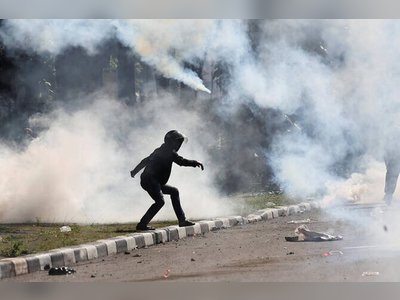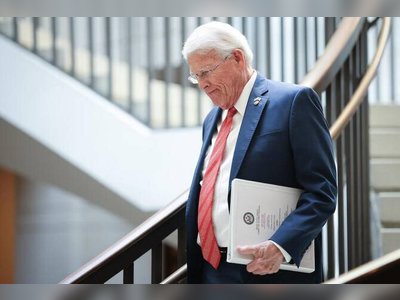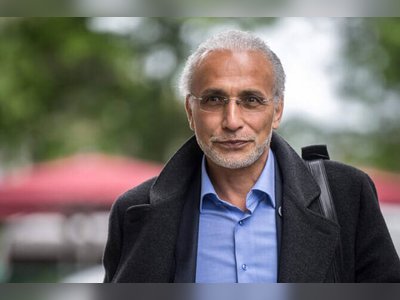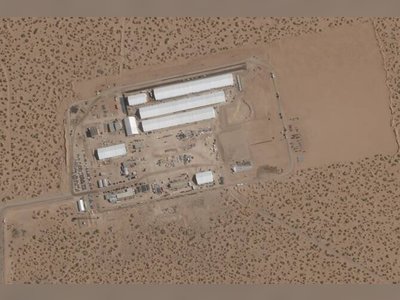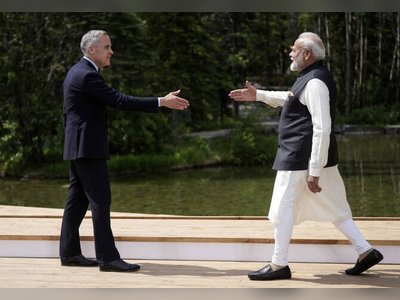
Thailand's Constitutional Court to Rule on Prime Minister's Fate
The court will decide whether to suspend Paetongtarn Shinawatra over her handling of the border dispute with Cambodia.
Bangkok, Thailand – The Thai Constitutional Court is set to rule on Friday regarding the fate of suspended Prime Minister Paetongtarn Shinawatra following a controversial call with Cambodian leader Hun Sen. Paetongtarn, the daughter of former prime minister Thaksin Shinawatra, was suspended last month after being accused of failing to protect Thailand's interests during a June phone conversation with Hun Sen, the contents of which were leaked online.The court, comprising nine judges, will begin deliberations at approximately 9:30 a.m. (0230 GMT) and is expected to render its decision by 3:00 p.m. This case stems from Paetongtarn's discussion with Hun Sen, during which she referred to a Thai military commander as her 'opponent' and addressed Hun Sen as 'uncle', sparking outrage in Thailand where the military holds significant influence.
The incident led to accusations of undermining the military and compromising national security.Paetongtarn's handling of this situation has put her at odds with conservative lawmakers who argue that she displayed a lack of integrity and failed to uphold appropriate standards.
As a result, on July 1st, the court suspended her from office pending its verdict.
Paetongtarn and her Pheu Thai party maintain that she acted in Thailand's best interest during the call.The leak of the phone conversation severely strained relations between Cambodia and Thailand, leading to a significant escalation of hostilities along their border in July, resulting in over 40 fatalities and displacing more than 300,000 individuals.
The conflict has deepened the long-standing political divide in Thailand, where a struggle for power between royalist, military-conservative forces and the Shinawatra political camp has persisted for decades.Should Paetongtarn be removed from office by the court's decision, it could lead to a political crisis as there is currently no clear successor within her fragile ruling coalition.
Under the Thai Constitution, only candidates who were nominated in the 2023 general election are eligible to hold the office of Prime Minister.
However, several potential candidates may face disqualification or lack sufficient political support.In this scenario, holding new elections could be a viable solution but it remains uncertain whether the current acting Prime Minister has the authority to call for polls or if only a Prime Minister approved by Parliament can initiate such action.
The incident led to accusations of undermining the military and compromising national security.Paetongtarn's handling of this situation has put her at odds with conservative lawmakers who argue that she displayed a lack of integrity and failed to uphold appropriate standards.
As a result, on July 1st, the court suspended her from office pending its verdict.
Paetongtarn and her Pheu Thai party maintain that she acted in Thailand's best interest during the call.The leak of the phone conversation severely strained relations between Cambodia and Thailand, leading to a significant escalation of hostilities along their border in July, resulting in over 40 fatalities and displacing more than 300,000 individuals.
The conflict has deepened the long-standing political divide in Thailand, where a struggle for power between royalist, military-conservative forces and the Shinawatra political camp has persisted for decades.Should Paetongtarn be removed from office by the court's decision, it could lead to a political crisis as there is currently no clear successor within her fragile ruling coalition.
Under the Thai Constitution, only candidates who were nominated in the 2023 general election are eligible to hold the office of Prime Minister.
However, several potential candidates may face disqualification or lack sufficient political support.In this scenario, holding new elections could be a viable solution but it remains uncertain whether the current acting Prime Minister has the authority to call for polls or if only a Prime Minister approved by Parliament can initiate such action.

